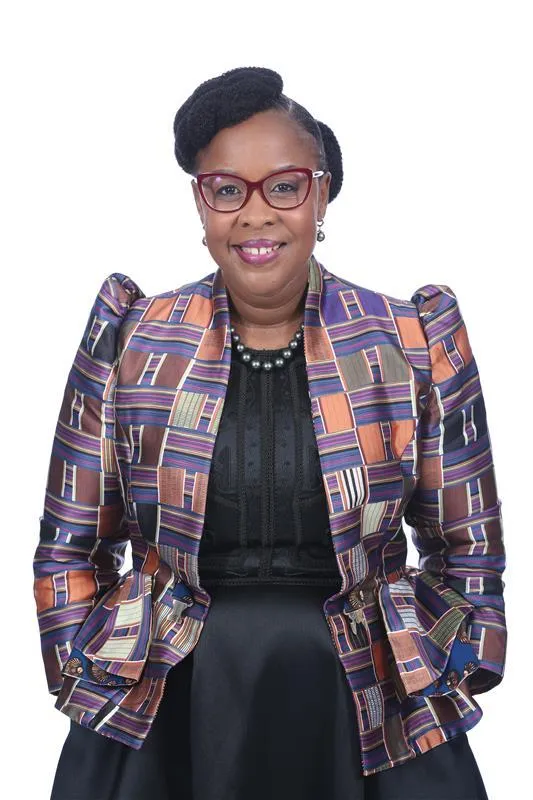When women's voices shape policy, economic outcomes improve

Platforms that connect community voices to global conversations represent more than technological innovation; they embody a fundamental shift in how economic policy gets formulated.
Image: Freepik
South Africa’s G20 presidency offers a unique opportunity to demonstrate how policy can deliver better outcomes for everyone – by including ordinary South Africans, particularly women, in its design
A small business owner in Khayelitsha checks her phone for the third time this morning, waiting for a loan approval that may never come.
Despite two years of profitable catering contracts and a full order book, banks still treat her lack of collateral and inconsistent cashflow as disqualifying risks.
Legal requirements add further hurdles: many South Africans cannot provide the formal proof of address demanded under FICA, while tax compliance issues or an adverse record can shut down an application before it begins.
Her business model isn’t flawed, but the policy frameworks governing access to capital rarely account for women like her. Stories like hers are widespread, and they reveal a systemic issue.
As South Africa observes Women’s Month and prepares to lead global economic conversations through its G20 presidency, one truth becomes clear: the biggest barrier to inclusive economic growth isn’t policy complexity but exclusion.
When policy design becomes exclusion by default
Economic policy is often crafted in boardrooms and think tanks where women’s daily struggles rarely register as foundational considerations.
In practice, this means that when policymakers discuss access to finance, they too often overlook women who lack traditional collateral, consistent cashflow, or formal proof of address.
Many also have employment histories that fall outside formal categories.
Meanwhile, tender processes require formal business registration and VAT compliance, automatically excluding the majority of women-owned enterprises operating informally.
By extension, trade policies also overlook how women dominate informal markets that remain invisible to official economic measures.
This exclusion stems from policy design processes that sideline the very people most affected by economic decisions and lived realities.
While officials debate financial inclusion strategies and SMME development frameworks, millions of South African women navigate an economy that treats their contributions as peripheral.
The woman running a spaza shop, the domestic worker sending remittances home, and the graduate juggling freelance work while caring for elderly parents have economic realities that don't fit into policy categories designed without them.
What emerges is an economic system where women face compounding barriers. Limited access to formal credit combines with exclusion from social protection schemes designed around formal employment, while policies fail to recognise care work as economically valuable.
These are often predictable outcomes of policymaking processes that treat women's economic participation as an afterthought.
Yet the solution isn't simply creating more programmes or policies. Real change requires examining who sits at the table where economic decisions are made.
Rewriting the rules: When women's voices lead
Real economic inclusion requires more than just translating existing policies into simpler language. It demands a fundamental rethink of who gets to shape policy from the beginning. As a B20 partner, Old Mutual created the ‘Add Your Voice’ platform to ensure South Africa's global policy leadership reflects genuine citizen priorities.
Instead of requiring women to fit into existing economic frameworks, this approach creates space for their insights to inform the frameworks themselves.
The transformation is immediate when women can voice their economic realities through accessible channels: community dialogue, digital submissions or public forums that bring policy conversations into townships and universities.
Policy discussions shift from perpetuating abstract theory to delivering concrete solutions.
The catering business owner doesn't need lectures on financial inclusion; she needs policymakers to understand why asset-based lending models exclude her thriving business.
The spaza shop operator doesn't need simplified explanations of trade policy; she needs officials to recognise how import regulations affect her customers' purchasing power.
This approach recognises something powerful: women aren't passive recipients of economic policy but active agents with essential insights about how economies actually function.
The domestic worker understands labour mobility in ways that formal employment statistics miss. The township entrepreneur possesses deeper knowledge about local economic ecosystems than many development economists.
When policy excludes these voices, it creates solutions for problems that don't exist while ignoring problems that do. South Africa now has the opportunity to show the world how this can be done differently.
Leading by example on the global stage
South Africa's historic opportunity to lead the B20 arrives at a crucial moment. Rather than perpetuating policymaking processes that exclude women's voices, the country can demonstrate how meaningful participation transforms both the quality of policy decisions and their real-world impact.
The mechanics of this kind of transformation matter. When citizens can submit their economic priorities through accessible platforms that synthesise perspectives and present them to B20 task forces, the entire policy conversation changes.
Women's insights reach global discussions on employment, trade and financial inclusion, ensuring that the resulting recommendations reflect economic realities rather than economic assumptions.
This isn't consultation for consultation’s sake; it's recognising that inclusive economic growth requires inclusive economic thinking.
South Africa's economic challenges, from unemployment to socio-economic inequality, cannot be solved through policies designed without input from those most affected by these challenges.
By creating pathways for these voices to reach international forums, the country positions itself as a leader in demonstrating what 21st-century economic governance can look like.
Making economic inclusion work
Meaningful economic inclusion starts with a simple recognition: if economic policy can't accommodate women's realities, the problem lies with the policy, not the women.
As South Africa takes its message of solidarity, equality and sustainability to the global stage through the B20, it has the chance to prove that inclusive policymaking isn't just morally necessary but economically essential.
The infrastructure for this transformation already exists.
Platforms that connect community voices to global conversations represent more than technological innovation; they embody a fundamental shift in how economic policy gets formulated.
The woman in Khayelitsha still waiting for loan approval represents millions whose economic potential remains constrained not by their capabilities, but by policies designed without them in mind.
When accessible mechanisms exist for their voices to shape the conversations that determine their futures, both policy and economic outcomes stand to improve. That’s not just inclusion. That’s effective economic policy.
Celiwe Ross, Chief Human Capital and Corporate Affairs Officer at Old Mutual.

Celiwe Ross, Chief Human Capital and Corporate Affairs Officer at Old Mutual.
Image: Supplied.
BUSINESS REPORT